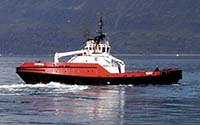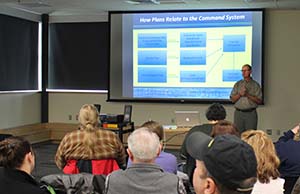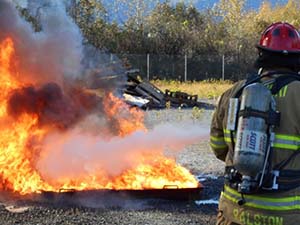By ALAN SORUM
Council Project Manager

A recent council study found that the escort tugs being used in Prince William Sound, though exceedingly capable, no longer represent the best technology being used for these types of applications and services worldwide.
Loaded oil tankers transiting the waters of Prince William Sound are required by federal law and their oil spill contingency plans to be accompanied by two escort tugboats. Currently, escort tugs can serve in a primary or secondary role, depending on performance requirements established in the tanker contingency plans. The goal of the escort tug system is to prevent an oil tanker that suffers a mechanical or propulsion issue from running aground.


